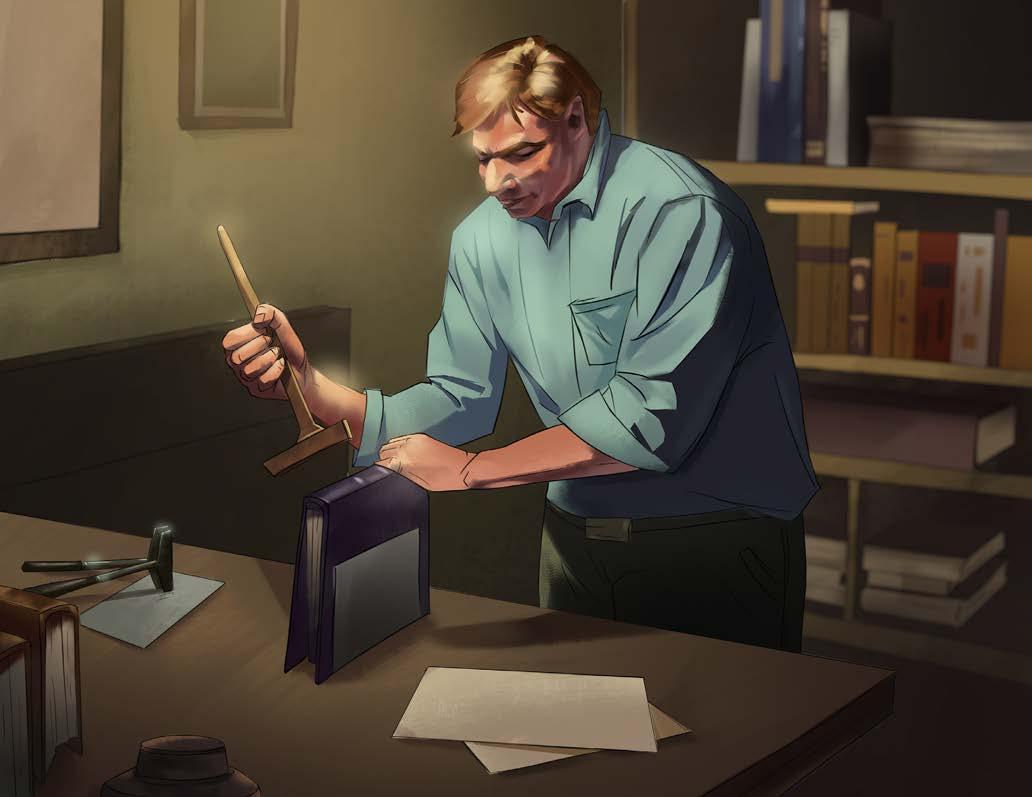History | American Revolution
Nathan Hale
A Patriot to Remember WRITTEN BY
I
t’s the fall of 1776 and New York City is under attack. The Declaration of Independence had birthed the United States of America barely two months earlier, and there was no turning back for the colonists. General George Washington had freed Boston in March and was slowly turning his army into a genuine fighting force. All eyes are now on New York City. The British first invaded Staten Island, then defeated the Americans on Long Island, forcing Washington’s retreat to Manhattan. The colonial General is now planning a counterattack to keep from losing all of New York City. As both sides dig in, Washington knows he will lose New York unless he can obtain good intelligence on the troop movements and fortifications of the British. There is only one way to get that information — General Washington needs a spy! But this is before the days of spies and agents holding a special lore in American culture. In 1776, there is no CIA, no MI6, no Mossad, certainly no loyal American intelligence network at all. In 1776, spies are the lowest of the low, not military heroes. They are hired guns, unsavory and untrustworthy. Spies are killed upon capture and are respected by none. Washington knows the information he needs cannot be trusted to that type of man. He needs one of his trusted officers for this particular task. But he could not, would not, demand such a dangerous and demeaning mission of just anyone — he wants someone to volunteer. Late at night, Colonel Tom Knowlton quietly gathers his officers in a tent at a secret location away from prying eyes and ears. But the men in this meeting are no ordinary group of 76
Rick Green
officers. These men are an elite special force group that Washington has recently formed — they are literally the very first American Rangers. In hushed tones, the Colonel asks for a volunteer to answer the General’s call. His request is met with dead silence. Finally, an older, gruff officer breaks the silence and says, “I am willing to be shot in battle, but I am not willing to be hanged like a dog.” In other words, there is no honor in this mission.
Knowlton tries further to persuade, but eventually gives up. As he is turning to leave and tell General Washington he has failed, a young man, standing in the doorway of the tent, steps forward, and simply says with a steady voice, “I will undertake the mission.” He has arrived at the meeting late, ill with a fever, but eager to serve. The courageous volunteer at the door is none other than Nathan Hale. Captain Hale is only 21 years of age, well-educated, and by all accounts of the ladies, a handsome fellow to boot. At the top of his Yale graduating class at the age of 18, Hale is a seriously devoted Christian, planning to become a minister of the gospel. Fresh out of college, Hale was serving as a teacher when the war broke
out. A well-accomplished speaker and debater in college, he argued that the higher education of women was being neglected. Therefore, in addition to serving as teacher for the Union Grammar School in New London, Connecticut, he has been teaching a group of ladies from 5 to 7 o’clock each morning. After a year of teaching, “the shot heard round the world” was fired at Lexington, Massachusetts, on April 19, 1775. Hale, still in his teens but enrolled in the local militia, attended the town meeting in New London and stood to speak. “Let us march immediately,” he said, “and never lay down our arms until we obtain independence!” The word “independence” had not yet been spoken of publicly in his town, but the courage of this young man shook the community from its slumber of colonial submission. He then shook the hand of each of his students, prayed with them, and left for war. Now Captain Hale finds himself volunteered for the most dangerous and most degrading mission he could imagine. Standing outside Colonel Knowlton’s tent, under cover of darkness, Hale’s good friend from college, Captain William Hull, tries to change his mind. Hull stresses the dangers of the mission, the likelihood of death, and the dishonorable legacy of being a spy. Nathan is unmoved and responds by pointing out that there is honor in a mission so necessary for the cause — his General and his nation need him, and he will do what duty demands! Hale makes his way behind enemy lines and, with his Yale diploma in hand, poses as a teacher looking for a new job. Over the course of several days, he is able to map out the British troop locations and fortifications. With this extremely valuable information hidden AMERI CAN ESSE NCE


























